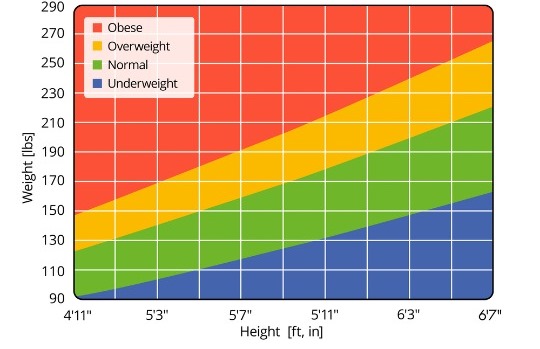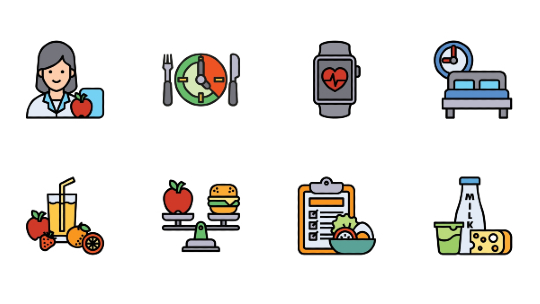Weight is one of the most common ways we measure our health – we get on the scale at home, at the doctor’s office, and at the gym. And many people use that number as an indicator of their health. But is weight really the best way to quantify our health or is it just the easiest?
What is weight?
Your weight is your total body mass, taking into account Earth’s pull of gravity. What’s considered a healthy weight range depends on a variety of factors including sex, age, and height.

As a general guideline, the average American woman is 5 feet 4 inches tall with a healthy weight of 110 to 144 pounds. The average American man is 5 feet 9 inches tall with a healthy weight of 128 to 168 pounds. Just remember that a lot of factors go into determining your personal healthy weight, so it’s best to discuss your weight goals with your doctor.
 What’s good about weight?
What’s good about weight?
According to Andrew Perry, M.D., F.A.A.P., F.A.C.E.P., the benefits of maintaining a healthy weight include a lower risk of heart disease, type 2 diabetes, cancer, and bone and joint conditions like osteoarthritis. “Tracking one’s weight over time and more importantly, using that information to help make better decisions about eating and exercise, is an important measure of health,“ says Perry .
That said, it’s important not to get caught up in the daily ups and downs on the scale or use weight as a sole indicator of health.
 What’s not?
What’s not?
Tim Rabetoy, certified personal trainer and medical exercise specialist, says weight isn’t an important metric when it comes to fitness gains because it doesn’t account for muscle or body composition. “People say that they want to be such-and-such weight on the scale and that’s their goal. This isn’t completely true,” says Rabetoy. “What people who are constantly weighing themselves really want is to look better, feel better, and be healthier.”
Perry reinforces that weight alone doesn’t give us an accurate picture of health. “Eating and exercise are not the only factors that influence weight,” says Perry. “Our genetic makeup has a role in body composition along with the relative proportions of fat, muscle, and other tissues that make up the body. Our genetic risks can be challenging to assess.”
 The verdict
The verdict
Weight is an important health metric, but only as a small part of your health. Perry says it should be considered in combination with other measures of cardiovascular and metabolic health. And as far as fitness goals go, Rabetoy says he ran his own personal training studio for years and never had a scale.
“The best way to measure your fitness gains is in the increased performance of your body, “says Rabetoy. “ You can also easily and practically measure your fitness gains by how your clothes fit, how you look in the mirror, and how much better you feel.”
What’s your number? is a series that explores health measurements and what they mean. Check out our last post on BMI.




